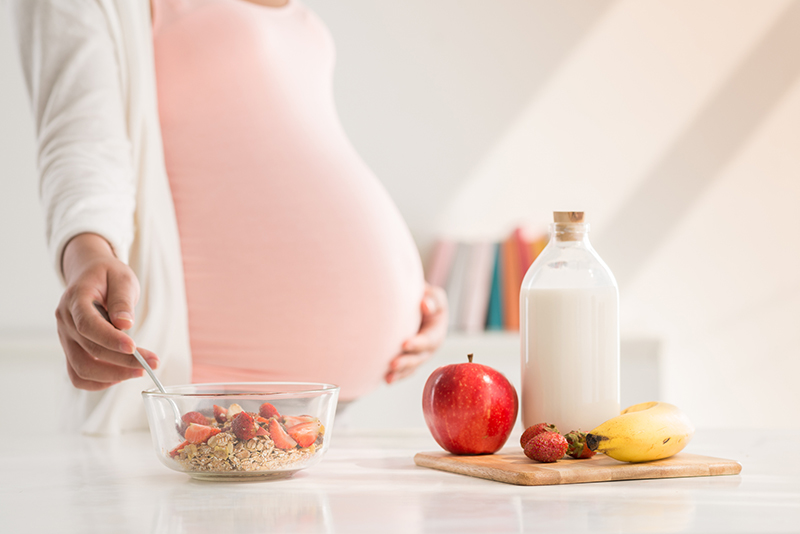Families For Life | Important Nutrients: What Should You Eat More of?

One of the most important jobs as a mum-to-be is to eat healthily — for you and your baby.
Mums-to-be need a higher calorie intake than usual only from the second trimester onwards so you don't need to start eating more now. Although you're likely to have a smaller appetite due to nausea in the first trimester, your appetite should improve subsequently, and your energy needs will increase by about 300kcal in the second trimester and 450kcal in the third trimester. Hence, picking the right foods will help you and baby stay in the best of health.
Go green
Green leafy vegetables like spinach and broccoli, along with citrus fruits, are good sources of folic acid. This is essential in preventing malformations of baby's spine and brain. A cup of peas, a cup of spinach, and four spears of asparagus add up to your daily requirement. Green vegetables also contain vitamin A and iron, which are important nutrients that promote cell growth and prevent anaemia in pregnancy. It's important to keep these in moderation as too much vitamin A can cause birth defects in the first trimester. Consult your doctor if you're unsure if your daily vitamin supplement is suitable for use in pregnancy.
Animal magic
Foods of animal origin like meat, poultry, milk, eggs and cheese provide vitamin B12, which is essential for blood formation. Hence, vegans (strict vegetarians who avoid all animal products including milk and eggs) should take a supplement including vitamin B12 to ensure they're getting the essential nutrients they need.
Dairy products like milk, cheese and yoghurt are also good sources of calcium, which makes for healthy teeth and bones for both mum-to-be and baby. If you dislike dairy foods you can still get your daily calcium requirement from bean curd, calcium fortified soymilk and fish with edible bones such as ikan bilis and sardines.
Healthy fats
Cold-water deep-sea fish are a great source of DHA (Docosahexaenoic acid), one of the omega-3 fatty acids needed for brain development and eyesight. Studies have suggested that women who eat cold-water deep-sea fish during pregnancy have babies with a higher IQ. Salmon and halibut are safe sources of this healthy fat — and also of vitamin D, which helps with calcium absorption. Two portions of oily fish should fulfil your weekly requirements for DHA. Alternatively, ask your doctor to prescribe a DHA supplement.
Explore more
- 5 pregnancy supplements you need and why you need them
- 6 foods you must keep off the menu
- Benefits and risks of 3 commonly used TCM supplements
- Do's and don'ts in pregnancy
- Here's what a healthy daily meal plan looks like
- Pregnancy and diet
By Associate Professor TAN Thiam Chye Head & Senior Consultant, Dr TAN Shu Qi Senior O&G Resident, Department of Obstetrics and Gynaecology, KK Women's and Children's Hospital
Sources:
The New Art and Science of Pregnancy and Childbirth 2008, World Scientific
Healthy Start for your Pregnancy 2012, Health Promotion Board Singapore
Copyright © 2016 HealthHub.sg. All rights reserved.